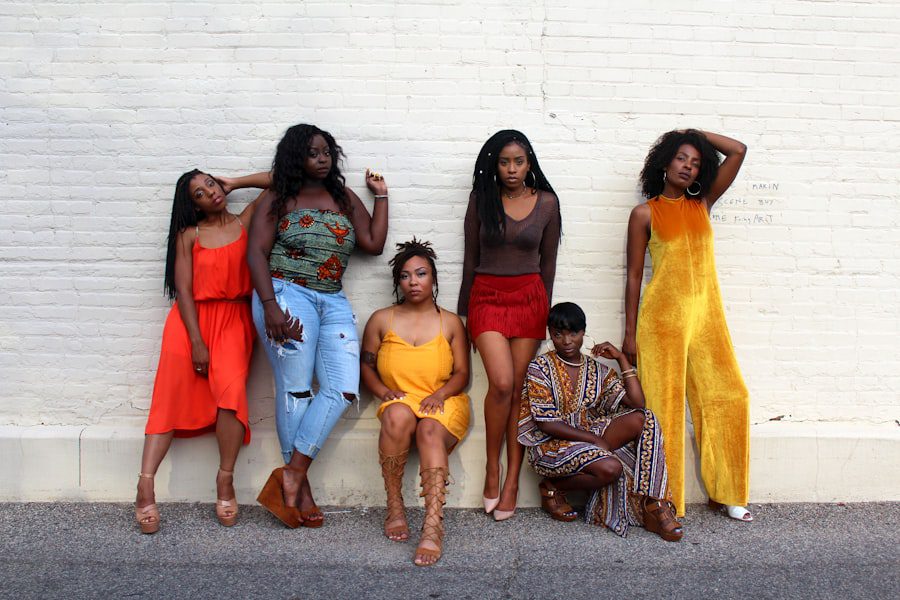The church has historically played a pivotal role in the promotion of liberty, serving as a moral compass and a sanctuary for those seeking freedom from oppression. This influence is rooted in the theological underpinnings of many religious traditions, which often emphasize the inherent dignity and worth of every individual. The church’s teachings on justice, compassion, and the sanctity of human life have inspired countless movements advocating for civil rights and personal freedoms.
By framing liberty as a divine right, the church has empowered individuals to challenge unjust systems and seek a more equitable society. Moreover, the church often acts as a community hub, fostering dialogue and collaboration among diverse groups. This communal aspect is crucial in promoting liberty, as it encourages individuals to come together, share their experiences, and advocate for their rights collectively.
Through sermons, outreach programs, and social justice initiatives, churches can galvanize their congregations to engage in civic activities that promote liberty. The church’s ability to mobilize people around shared values makes it a powerful ally in the ongoing struggle for freedom and justice.
Key Takeaways
- The church plays a crucial role in promoting liberty by advocating for justice, equality, and human rights.
- Throughout history, the church has made significant contributions to liberty, including the abolition of slavery and the promotion of civil rights.
- The church faces challenges in influencing liberty, such as political polarization, secularization, and internal divisions.
- Reviving church influence for liberty requires strategies such as community engagement, education, and collaboration with other organizations.
- Collaboration between churches and liberty advocates is essential for creating meaningful and lasting change in society.
Historical Contributions of the Church to Liberty
Throughout history, the church has been at the forefront of numerous movements that have advanced liberty. One notable example is the role of the church during the abolitionist movement in the 19th century. Many religious leaders and congregations took a stand against slavery, viewing it as a moral abomination that contradicted their faith’s teachings on human dignity.
Figures such as Frederick Douglass and Harriet Tubman were deeply influenced by their Christian beliefs, which fueled their commitment to ending slavery. Churches became safe havens for runaway slaves, providing not only physical refuge but also spiritual support in their quest for freedom. In addition to the abolitionist movement, the church has also played a significant role in advocating for civil rights in the 20th century.
Leaders like Martin Luther King Jr., who was a Baptist minister, utilized religious rhetoric to inspire action against racial injustice. His famous “I Have a Dream” speech drew heavily on biblical themes, emphasizing the moral imperative to fight for equality and justice. The church served as a meeting place for activists, where strategies were developed and solidarity was built among those fighting for civil rights.
This historical legacy illustrates how the church has consistently championed liberty by aligning its mission with the pursuit of social justice.
Challenges Facing the Church in Influencing Liberty

Despite its rich history of promoting liberty, the church faces significant challenges in its contemporary role as an advocate for freedom. One major obstacle is the increasing polarization within society, which often extends into religious communities. As political ideologies become more entrenched, churches may find themselves divided along partisan lines, making it difficult to present a unified front on issues of liberty.
This fragmentation can dilute the church’s influence and hinder its ability to mobilize congregations around shared values that transcend political affiliations. Additionally, there is a growing perception among some that religious institutions are out of touch with modern societal issues. As secularism rises and younger generations gravitate towards more progressive ideologies, traditional churches may struggle to connect with these individuals on matters of liberty.
This disconnect can lead to a decline in church attendance and participation in social justice initiatives, further weakening the church’s capacity to advocate for freedom. To effectively promote liberty in this changing landscape, churches must navigate these challenges while remaining true to their core values.
Strategies for Reviving Church Influence for Liberty
To revitalize its influence in promoting liberty, the church must adopt innovative strategies that resonate with contemporary audiences. One effective approach is to engage in community outreach programs that address pressing social issues such as poverty, education, and healthcare. By actively participating in these areas, churches can demonstrate their commitment to improving the lives of individuals and communities, thereby reinforcing their role as advocates for liberty.
Initiatives like food banks, tutoring programs, and health clinics not only serve immediate needs but also create opportunities for dialogue about broader issues of justice and freedom. Another strategy involves leveraging technology and social media to reach a wider audience. In an age where information is disseminated rapidly through digital platforms, churches can utilize these tools to share their messages about liberty and social justice.
Online sermons, virtual discussions, and social media campaigns can engage younger generations who may be less inclined to attend traditional services. By creating content that speaks to contemporary issues while remaining rooted in faith-based principles, churches can attract new followers and reinvigorate their advocacy efforts.
The Importance of Collaboration Between Churches and Liberty Advocates
Collaboration between churches and liberty advocates is essential for creating a robust movement that champions freedom and justice. By working together, these groups can pool resources, share knowledge, and amplify their voices on critical issues. For instance, partnerships between faith-based organizations and civil rights groups can lead to more effective advocacy campaigns that address systemic injustices.
Such collaborations can also foster mutual understanding between different communities, breaking down barriers that often hinder collective action. Furthermore, these alliances can enhance the credibility of both churches and liberty advocates. When religious institutions align themselves with established civil rights organizations, they signal their commitment to social justice while gaining access to valuable expertise in advocacy strategies.
This synergy can lead to more impactful initiatives that resonate with a broader audience. By standing together in solidarity, churches and liberty advocates can create a powerful force for change that transcends individual efforts.
The Role of Church Leaders in Championing Liberty

Church leaders play a crucial role in championing liberty within their communities. Their positions of authority allow them to influence congregational attitudes toward social justice issues significantly. By preaching about the importance of liberty from the pulpit and incorporating these themes into their teachings, leaders can inspire their congregations to take action.
This moral leadership is vital in shaping public discourse around issues of freedom and justice. Moreover, church leaders can serve as mediators between their congregations and broader societal movements advocating for liberty. They have the unique ability to bridge gaps between different groups by fostering dialogue and understanding among diverse perspectives.
By encouraging open discussions about contentious issues such as immigration reform or racial equality, church leaders can help cultivate an environment where individuals feel empowered to advocate for their rights while respecting others’ viewpoints.
Examples of Successful Church-Led Initiatives for Liberty
Numerous successful initiatives led by churches demonstrate their potential to promote liberty effectively. One prominent example is the “Sanctuary Movement” of the 1980s when various religious congregations across the United States provided refuge for Central American refugees fleeing violence and persecution. Churches opened their doors to those seeking asylum, offering not only physical shelter but also legal assistance and advocacy support.
This grassroots movement highlighted how faith communities could mobilize around issues of human rights and dignity. Another noteworthy initiative is the “Faith in Action” network, which brings together faith leaders from various denominations to advocate for social justice issues such as affordable housing, healthcare access, and criminal justice reform. By uniting diverse religious voices under a common cause, this initiative has successfully influenced local policies and raised awareness about systemic injustices affecting marginalized communities.
These examples illustrate how churches can leverage their resources and networks to champion liberty effectively.
The Future of Church Influence on Liberty
Looking ahead, the future of church influence on liberty will likely be shaped by ongoing societal changes and challenges. As secularism continues to rise and new generations emerge with different values and priorities, churches must adapt their approaches to remain relevant advocates for freedom. This may involve rethinking traditional methods of engagement and embracing more inclusive practices that resonate with diverse populations.
Additionally, as global issues such as climate change and economic inequality become increasingly pressing, churches will need to broaden their focus beyond domestic concerns to address these interconnected challenges. By framing liberty within a global context and emphasizing its relevance to contemporary issues, churches can position themselves as vital players in the ongoing struggle for justice and freedom worldwide. The adaptability of religious institutions will be crucial in ensuring they continue to serve as champions of liberty in an ever-evolving landscape.


